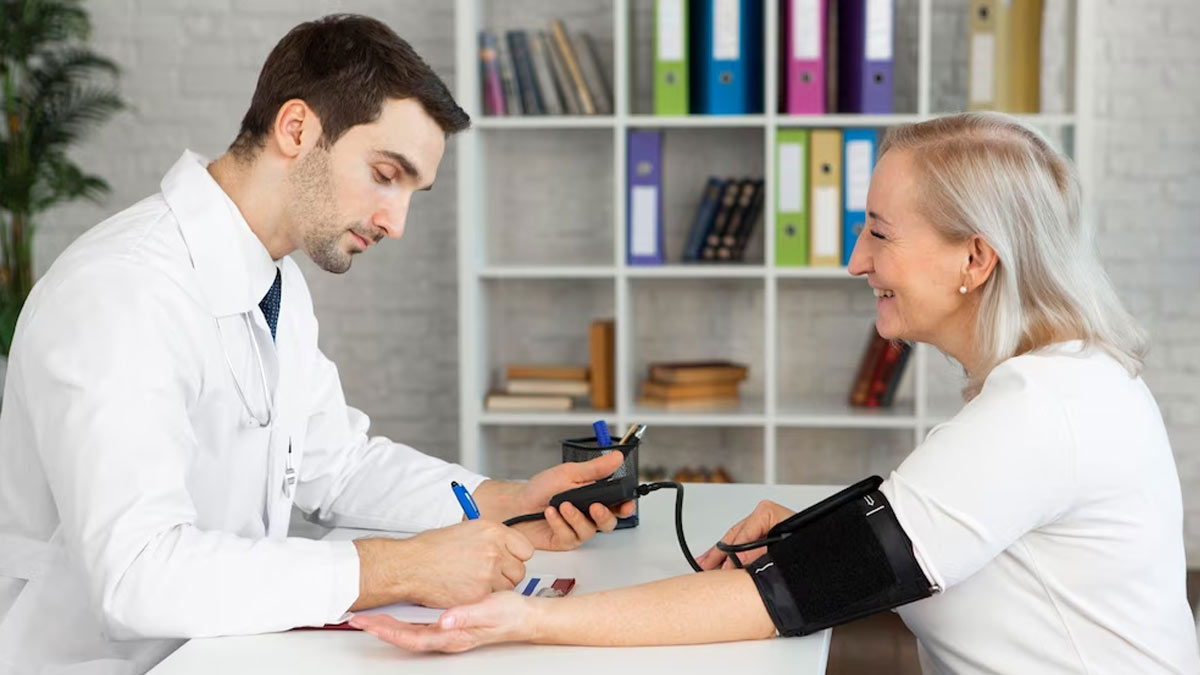
If you're in your thirties, the first thing you should do is get a health checkup done. This helps identify illness before any signs appear. It also helps you understand your body better and how it might change as you get older. We spoke to Dr Mohammad Safir Haider, Consultant - Internal Medicine, Cygnus Laxmi Hospital, who listed preventive tests that you should undertake when you hit your 30s.
Table of Content:-
The Importance of Turning 30: A Checkpoint For Your Health
Dr Haider said, "Your twenties might have been a time of experimentation and indulgence, but as you hit 30, it's an opportunity to establish healthier habits. These habits can contribute to better physical and mental well-being in the long run. Your thirties are a transitional period in terms of ageing. It's an ideal time to invest in skin care, nutrition, and exercise routines that support healthy ageing and maintain youthful vitality. Therefore, schedule a thorough physical examination with your healthcare provider. This checkup will evaluate your overall health, including blood pressure, cholesterol levels, and heart health."
Essential Preventive Tests After Turning 30
Dr Hairder listed the preventive tests you should undertake after turning 30 as follows:

Blood Sugar Level Meausrement
Dr Haider said, "Check your blood sugar after turning 30 to catch diabetes signs early. Fasting and post-eating tests show how your body handles sugar. This helps you make lifestyle changes or seek help if needed."
Cholesterol Test
Another thing that you should do after hitting your 30s is to test your cholesterol levels. High levels of LDL cholesterol are associated with an increased risk of heart disease, while higher levels of HDL cholesterol are considered beneficial for heart health. Monitoring guides diet changes for optimal levels and lower heart disease risk. A study published in the Oman Medical Journal found that measuring lipid serum levels could be beneficial in predicting cancer progression. Elevated LDL levels may serve as an indicator of increased risk for metastasis (spread of cancer).
Thyroid Test
Dr Hairder informed, "The thyroid gland plays a significant role in regulating your body's metabolism and energy production. Regular thyroid testing ensures that your thyroid gland is functioning properly, enabling early intervention if any abnormalities are detected."
Also Read: Dealing With Hypothyroidism? Expert Lists Foods You Should Avoid
Urine Test
A urine routine test examines your urine for any abnormalities. It can help detect kidney disorders, urinary tract infections, and other underlying health issues.
Blood Cell Count Test
Dr Haider informed, "This test provides valuable information about your overall health and the composition of your blood. It assesses levels of red blood cells, white blood cells, and platelets. Changes in these blood cell counts can indicate various health conditions, including anaemia, infections, and blood disorders."

Kidney and Liver Tests
Dr Haider added, "Kidney and liver function tests evaluate how well your kidneys and liver are working. These tests measure levels of creatinine, Blood Urea Nitrogen (BUN), and liver enzymes such as Alanine Transaminase (ALT) and Aspartate Transaminase (AST). Abnormalities in these levels can indicate kidney or liver problems, allowing for timely management and prevention of potential complications."
Also Read: How To Recognise And Treat A Urinary Tract Infection
ECG, TMT (Treadmill Test) / ECHO
After 30, assess heart health with Electrocardiogram (ECG), Treadmill tests (TMT), and Echocardiogram (ECHO) tests. It helps detect rhythm issues and heart conditions early.
Skin Cancer Screening
Regular skin cancer screenings can help detect suspicious moles or lesions early when treatment is most effective. Make a habit of checking your skin for any changes and consult a dermatologist for a professional skin examination, especially if you have a history of sun exposure or a family history of skin cancer.

Ultrasound Abdomen and Pelvis
An ultrasound of the abdomen and pelvis helps visualise the organs in these areas, including the liver, kidneys, gallbladder, uterus, and ovaries. It can identify any structural abnormalities, growths, or other issues that may require medical attention.
Prostate Specific Antigen (For Men)
Dr Haider said, "For men, a Prostate-Specific Antigen (PSA) test is recommended to screen for prostate health. Elevated PSA levels may indicate prostate problems, including inflammation or prostate cancer. Regular PSA testing enables early detection and timely management."
PAP Smear Test For Women
Women should prioritise PAP smears for cervical health for breast health. These screenings play a crucial role in identifying potential issues at an early stage, enhancing the chances of successful treatment.
Mammograms
Breast cancer is a significant concern for women, and the risk increases with age. Mammograms are essential for early detection of breast cancer, and guidelines typically recommend starting regular screenings at age 40. However, if you have a family history of breast cancer or other risk factors, your doctor may recommend earlier and more frequent mammograms.
Bottomline
Dr Haider concluded, "While the recommended frequency of these tests may vary based on individual risk factors, discussing your health concerns and screening options with your healthcare provider is the first step toward a lifetime of good health. Remember that early detection of health issues can lead to more effective treatment and a better quality of life as you age."
[Disclaimer: The information in this article is shared by a registered healthcare professional and is for informational purposes only. Hence, we advise you to consult your expert for a detailed analysis of your health checkup.]
Also watch this video
How we keep this article up to date:
We work with experts and keep a close eye on the latest in health and wellness. Whenever there is a new research or helpful information, we update our articles with accurate and useful advice.
Current Version